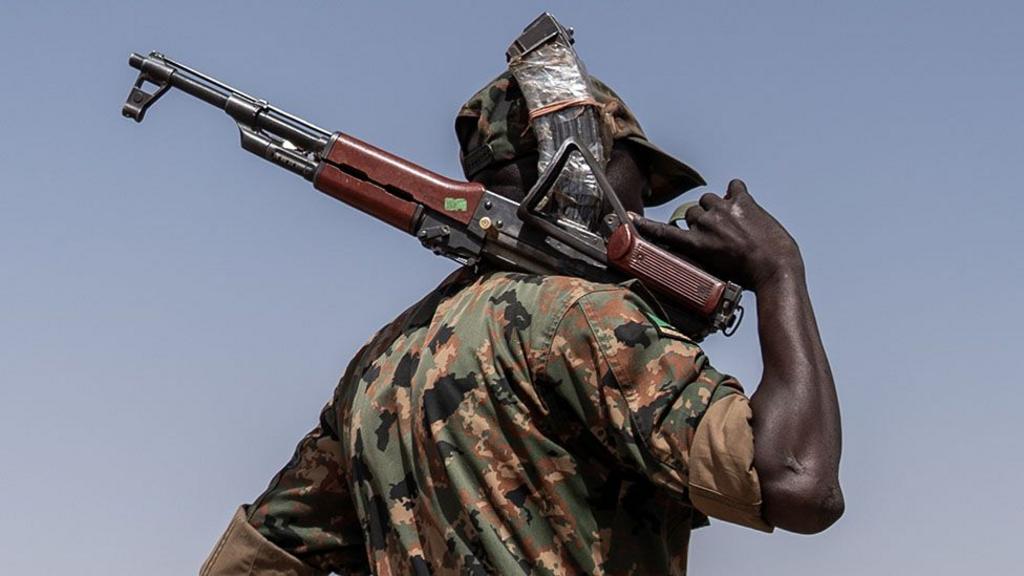“`html
Sudan’s strategically significant Kordofan region, rich in oil resources, has become a critical battleground in the ongoing conflict between the Sudanese army and rival paramilitary forces. Both sides are vying for control in a war that has deeply affected the African nation for over two years.
Recent attacks resulting in hundreds of civilian casualties have drawn increased attention to the intense struggle for this key area.
“Control of Kordofan effectively means control of the country’s oil supply, as well as a significant portion of Sudan,” stated Amir Amin, an analyst at Oasis Policy Advisory, in comments to the BBC.
The region’s importance extends to landlocked South Sudan, as its oil exports rely on pipelines traversing Kordofan. Therefore, South Sudan has a vested interest in the region’s stability.
Fighting for the region, comprising three states and approximately eight million people, has escalated since June. The army has focused on reclaiming territory from the Rapid Support Forces (RSF), which had made substantial gains, including recapturing the capital, Khartoum, and neighboring Gezira state, Sudan’s agricultural heartland, in the preceding months.
Sudan’s military leader, Gen Abdel Fattah al-Burhan, made a second visit to Khartoum’s main airport on July 20, following his troops’ expulsion of RSF fighters in March.
Gen Burhan’s continued presence in Port Sudan suggests a lack of confidence in permanently returning to Khartoum, now largely devastated.
The conflict has resulted in approximately 150,000 fatalities and displaced roughly 12 million people – a figure comparable to the populations of Tunisia or Belgium.
The RSF seized Khartoum shortly after the conflict began in April 2023, following a major rift between Gen Burhan and Gen Mohamed Hamdan Dagalo, also known as “Hemedti,” the paramilitary group’s commander and Burhan’s former ally.
The RSF assisted Burhan in a 2021 coup and in suppressing dissent, until their alliance dissolved over Gen Dagalo’s resistance to Burhan’s plan to integrate the paramilitary force into the army.
Alan Boswell, an analyst with the International Crisis Group, told the BBC that the army seeks to defeat the RSF in Kordofan to facilitate a westward push into Darfur, the paramilitary group’s origin.
Conversely, the RSF aims to seize Kordofan to gain “new momentum” and position itself “within striking distance of central Sudan, including the capital, again,” according to Mr. Boswell.
Dr. Suliman Baldo, director of Sudan Transparency and Policy Tracker, expressed doubt to the BBC regarding the army’s ability to breach RSF defenses in Kordofan.
He noted that the majority of RSF fighters originate from the Misseriya ethnic group in West Kordofan, bordering Darfur, “and therefore they will be fighting to protect their own communities.”
Army airstrikes in West Kordofan, including its capital, el-Fula, and the town of Abu Zabad, have alienated local populations, Dr. Baldo stated, calling it a “counterproductive policy of collective punishment of the so-called social incubators” of the RSF.
While the army maintains control of oil fields in the region, the RSF has threatened to extend the conflict to the Heglig oil-producing area in South Kordofan, near the South Sudan border, if aerial bombardments continue.
“If the army’s aviation returns again and bombs citizens in West Kordofan state, we will strike and shut down Heglig’s oil and kill the engineers,” Youssef Awadallah Aliyan, head of the RSF’s civilian administration in the state, reportedly said to the Sudan Tribune news site after visiting the market struck by airstrikes in el-Fula.
The United Nations Office for the Coordination of Humanitarian Affairs (OCHA) reported that the strikes on el-Fula and Abu Zabad, including one on a school sheltering families, reportedly killed more than 20 people.
OCHA condemned the attacks, emphasizing that civilians and civilian infrastructure, including schools, homes, and shelters, should “never be targeted” and that warring parties must adhere to international humanitarian law.
The RSF has also faced accusations of targeting civilians.
UNICEF reported that over 450 civilians, including 24 boys, 11 girls, and two pregnant women, were reportedly killed in recent attacks in North Kordofan’s Bara area and the villages of Shag Alnom and Hilat Hamid.
“These attacks are an outrage,” the agency stated, adding that “they represent a terrifying escalation of violence” and a “complete disregard for human life.”
The Yale Humanitarian Research Lab, which monitors the conflict, stated that satellite image analysis of Shag Alnom was “indicative of intentional arson attacks.”
The Emergency Lawyers rights group reported that many of the more than 200 victims “were burned to death in their homes or shot.”
Concerns are mounting that civilian casualties could increase following reports of RSF mobilization for an offensive to capture el-Obeid, the capital of North Kordofan state.
The town of Umm Sumaima has changed hands multiple times in recent weeks.
“It is the last defense post for the Sudan Armed Forces before el-Obeid,” Dr. Baldo explained.
Mr. Amin stated that seizing Umm Sumaima would enable the RSF to besiege the military base in el-Obeid, while the army aims to break through to establish a new supply route for rearming its soldiers in other parts of Kordofan.
Given the high stakes, the battle for Kordofan, spanning approximately 390,000 square kilometers, is expected to be prolonged and intense.
“Whether or not it will decide the victor of the war is up for debate, but it definitely will be a seismic shift,” Mr. Amin concluded.
Go to BBCAfrica.com for more news from the African continent.
Follow us on Twitter @BBCAfrica, on Facebook at BBC Africa or on Instagram at bbcafrica
The BBC revisits the city of Goma six months after it was seized by M23 rebels.
Natasha Akpoti-Uduaghan hoped to resume work after she said a court had told the senate to recall her.
Six people have been pulled out alive, with one seriously injured, since shafts collapsed on Sunday.
Stephen Munyakho’s mother tells local media she “rolled on the floor” on hearing her son had been released.
The medical equipment keeping Mark Moodley’s mother alive no longer relies on an erratic power supply.
“`

